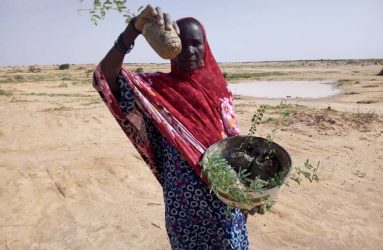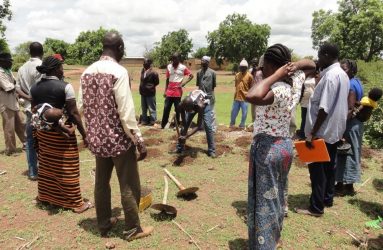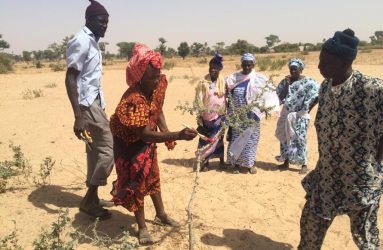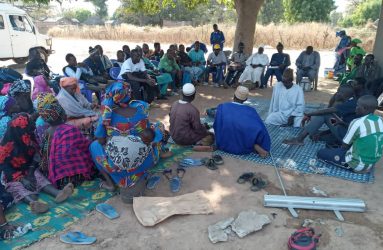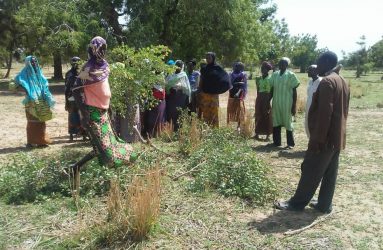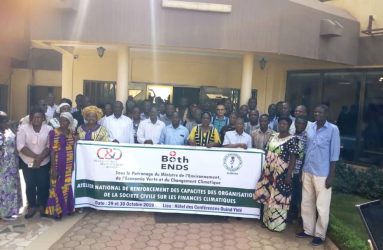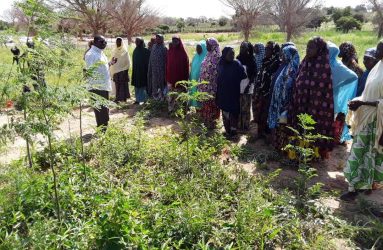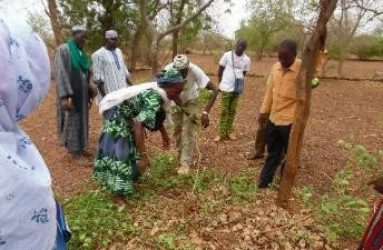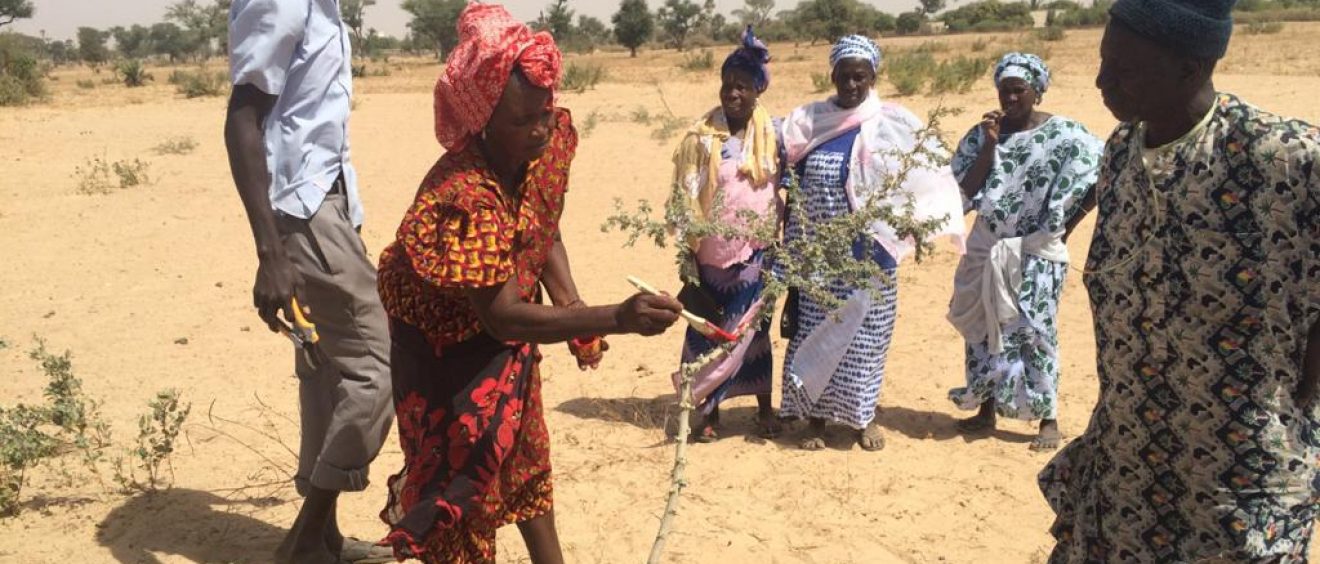
The social practice of regreening the Sahel
Open a satellite map of the African continent and you’ll see the Sahel front and centre, a large, brown band across Northern Africa. It suggests a vast and dry piece of planet Earth, with no visible sign of people and no hint of vegetation. But zoom in closer and the picture becomes richer. Contours cut across the Earth’s surface, villages are visible here and there, and small green dots pepper the landscape. Up close, one begins to see the story of communities regreening the Sahel.
Since 2018, Both ENDS has supported partners in Niger, Senegal and Burkina Faso in a unique and ambitious ten-year programme to transform the Sahel. The no-nonsense name of the programme – Communities Regreen the Sahel – intentionally highlights the programme’s bottom-up approach. Regreening is not just about planting trees. It is, at its core, a social process. Through the programme, communities get motivated to adopt Farmer Managed Natural Regeneration (FMNR), a traditional method of accelerating revival of natural vegetation which increases sustainable food production.
Transferring knowledge about FMNR techniques is crucial to the programme, but it is just one piece of a more complicated puzzle. That puzzle includes issues around access to livelihoods, land, governance, safety, security and investment in what is often an already challenging context. Recent events in Burkina Faso illustrate the challenge: 700,000 people in the country are currently displaced due to conflict and violence from armed groups. In Senegal, people are concerned about the future of their customary land rights as the government pushes to make more state land available to businesses. Multiple regions in Niger are in a continuous state of emergency.
PUTTING DOWN THE MISSING PIECES OF THE PUZZLE
Against this challenging backdrop, the Communities Regreen the Sahel programme has achieved considerable results in its first two years. More than 10,000 farmers have been trained in Farmer Managed Natural Regeneration and the practice has been expanded to more than 44,000 hectares. Equally important, there has been a significant increase in the number of land use agreements by farmers and nomadic pastoralists – one of the many pieces missing in the regreening puzzle. The perspectives of these two groups are often at odds, with pastoralists wanting and needing land for their cattle to graze upon, and farmers seeing a threat for their young sprouts. Since enclosing land is not always an option (or sometimes even illegal), dialogues and local agreements are crucial to avoid and/or mitigate conflict and violence and ensuring a win-win situation for all land users.
One of the seven project partners in Niger seems to have developed the right formula for facilitating constructive dialogue between the two groups. In December, the group organised a social forum on conflict management and social cohesion in Dogonkiria. The forum involved representatives from all the communities living in the programme area, as well as representatives from the seven municipalities, political and administrative authorities (prefect, mayor, and vice-mayors), customary chiefs of cantons, villages and tribes (e.g. Hausa, Peulh and Touareg), and technical service and NGOs staff. The forum generated – and affirmed – many useful lessons that have since been shared across the programme. Key among these is the importance of an inclusive, participatory approach that takes into account the real needs of the communities, and promotes social cohesion and peace as part of the overarching social transformation that the programme is setting in motion. Another is the importance of mobilising all appropriate means for fostering dialogue and establishing sustainable natural resource management, including solid mechanisms to prevent conflicts.
Such changes take time, patience and flexibility, and it was with this in mind that the Sahel programme was designed. The programme gives partners the space they need to problem solve and adapt their approaches to the different contexts they face. Programme partners are encouraged to continually innovate and adapt to farmers’ and communities’ actual needs. Regular programme meetings are a key opportunity for sharing best practices.
BURKINA DAY IN MADRID
For its part, Both ENDS is learning from its Sahel partners about the interplay between social transformation and land restoration. In light of increasing attention to and investment in the Sahel by the Netherlands, Europe and other international actors, Both ENDS is helping ensure partners’ participation in key policy processes and dialogues, like the 2019 UN Conference on Combatting Desertification in New Delhi and UN Climate Conference in Madrid. During the climate talks, partners from Burkina Faso were invited to participate in ‘Burkina Day’, where they described the programme to an audience that included the country’s UN climate change and Green Climate Fund focal points, as well as the Minister of Environment, Climate Change and the Green Economy. Complementing these activities was a roundtable in Burkina Faso and a session in Madrid, organised by Both ENDS, on the importance of directing climate finance to local civil society initiatives. Finally, in an effort to expand the programme further Both ENDS teamed up with programme partners to develop a proposal in response to the Ministry of Foreign Affairs’ new Drylands Sahel Programme. In addition to bringing new, complementary organisations into the fold, the proposal features enhanced use of modern technologies and data.

